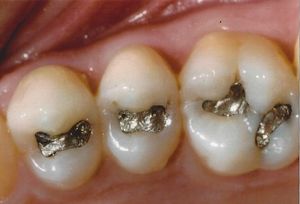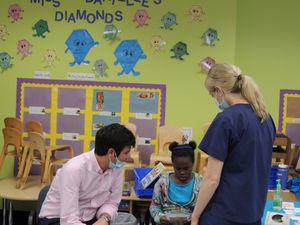Blog
What about those silver fillings?
David M. Hassid, DMD
A recent two year study from The National Dental Practice-Based Research Network, published in the Journal of the American Dental Association, evaluated silver (amalgam) and tooth-colored (composite) fillings. Silver fillings are not as common as they once were mainly due to their appearance and the health concerns with mercury. The only valid concern, however, is that of appearance because to this day there is no evidence that mercury from silver fillings causes any health issues or concerns. So, what did the study say? The same thing that I was taught in dental school and hopefully the same thing you have been told. Amalgam fillings are perfectly fine and in this particular study had no significant difference in longevity than that of composite fillings. In many other studies, also referenced in this study, amalgam fillings had greater longevity than composite fillings. The take away: Don't be afraid of amalgam whether it is already in your teeth or you are in need of a filling.
moreVolunteering
Hassid Dental
This past Saturday (May 18th) our hygienist, Chandra and Dr. Hassid joined other health care providers for a health and wellness day at The Nehemiah Center in Houston. This event was organized by the HYLA Leadership Academy and was a great success. We would like to thank the HYLA Leadership Academy for inviting us and all those involved with helping out.
moreOral Cancer Screening
David M. Hassid, DMD
Did you know that last month was Oral Cancer Awareness Month? Are you having an annual screening done? The facts are astonishing: the 5-year survival rate (will you be alive in 5-years from the time of diagnosis) is about 50/50. Why? Because of late detection. When detected early, the 5-year survival rate is closer to 90%. Although alcohol and tobacco use is highly correlated with oral cancer, HPV, transmitted through saliva, sexual and skin-to-skin contact increases the risk of having oral cancer 15 times. HPV is the fastest growing cause of oral cancer and is responsible for the majority of oral cancer in individuals younger than 50.
Contact our office for an oral cancer screening and see how we use the latest technology, OralID.
For more information:
http://www.oralcancerfoundation.org
http://www.4orca.org/oralcancer.html
more


